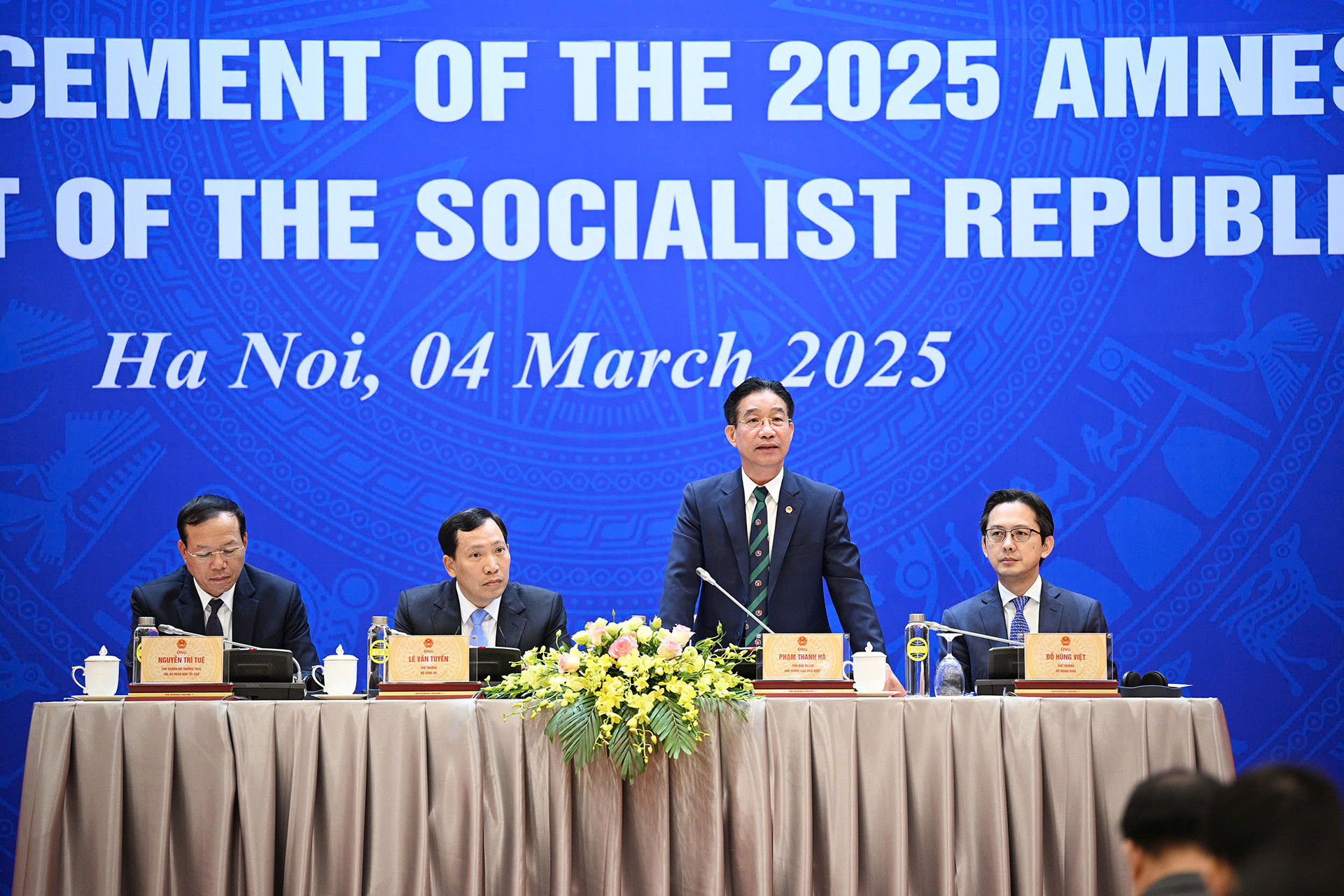
On the morning of March 4, the Office of the President, in coordination with the Ministry of Public Security, the Ministry of Foreign Affairs, and the Supreme People's Court, held a press conference to announce the 2025 presidential amnesty decision.
This year marks several significant national events, including the Party Congress at all levels leading up to the 14th National Party Congress, the 50th anniversary of national reunification, and the 80th National Day.
In line with Vietnam’s humanitarian traditions and policies of leniency, and upon the recommendation of the government, President Luong Cuong signed the 2025 amnesty decision on March 3 to commemorate the 50th anniversary of national reunification on April 30.
Legal framework and historical significance of the amnesty policy
Deputy Chief of the Office of the President, Pham Thanh Ha, announced the details of the amnesty decision.
Amnesty is a legal mechanism outlined in the Constitution and institutionalized through the 2018 Amnesty Law (which replaced the 2007 Amnesty Law).
Since 2009, Vietnam has conducted 10 amnesty programs during major national celebrations, granting clemency to nearly 100,000 prisoners who demonstrated good behavior, work ethics, and academic achievements while incarcerated.
These programs have been well received both domestically and internationally, reinforcing Vietnam’s commitment to human rights and fair treatment of all citizens, including those serving prison sentences.
“The President’s amnesty decisions have granted tens of thousands of people the opportunity to start anew, reunite with their families, and reintegrate into society. Most released individuals have successfully resettled, securing jobs and living law-abiding lives. The rate of reoffending among those granted clemency remains very low. This is the most profound humanitarian aspect of the amnesty policy, highlighting Vietnam’s dedication to human rights in all state policies,” Ha emphasized.
Eligibility criteria for amnesty in 2025
Amnesty eligibility will be determined based on the period of sentence served as of April 30, 2025. Eligible individuals include:
Those serving fixed-term prison sentences.
Those originally sentenced to life imprisonment who have had their sentences reduced to fixed terms.
Individuals temporarily released from serving their sentences.
To qualify, prisoners must have demonstrated significant progress, good behavior, and compliance with prison regulations. They must have served at least:
One-third of their sentence for fixed-term prisoners. If a sentence reduction was previously granted, the reduced portion is not counted toward time served.
At least 14 years for those sentenced to life imprisonment but later granted a reduced sentence. If further sentence reductions were granted after the life sentence was commuted to a fixed term, these additional reductions are not included in the required time served.
Additionally, prisoners must have fulfilled all financial obligations, including: Payment of fines and court fees. Compensation for damages and other civil liabilities, especially in cases related to corruption.
Special consideration is also given to: Prisoners aged 70 or older. Individuals from particularly difficult family circumstances who are the sole breadwinners in their households. Pregnant women or mothers with children under 36 months old living with them in prison. People with severe disabilities or especially severe disabilities.
Crimes excluded from amnesty consideration
Certain categories of prisoners are not eligible for amnesty, including those convicted of:
Crimes against national security, such as treason, espionage, and acts aimed at overthrowing the government.
Terrorism and violent offenses, including riots, attacks on state institutions, and destruction of state infrastructure.
Propaganda against the state, including the production, storage, or distribution of anti-state materials.
Disrupting prison operations or organizing acts of terrorism against detention facilities.
Tran Thuong